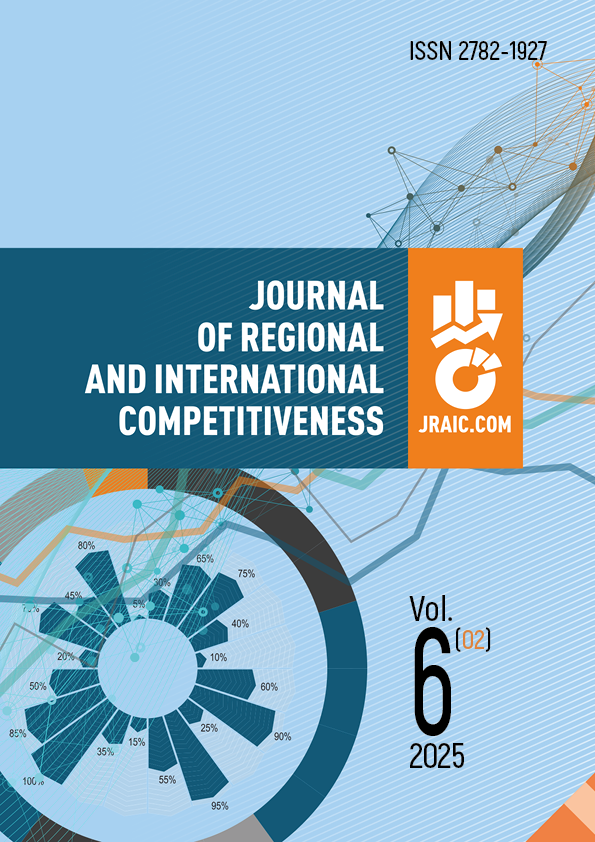Saint Petersburg, St. Petersburg, Russian Federation
This article examines the role of Environmental, Social, and Governance (ESG) signals in attracting and retaining employees within top-tier Russian companies. As ESG compliance becomes increasingly essential for businesses, this study employs signaling theory to analyze how organizations communicate their commitment to sustainable practices. Existing theory suggests that effective ESG communication enhances organizational reputation and attractiveness to job seekers, ultimately influencing their intention to apply. To analyze, what is the current situation with ESG compliance communication to employees in leaders of their respective industries in Russia, we employ thematic and content analysis. By exploring the communication of various ESG practices in companies’ ESG reports and on their career websites, we map the structure of ESG signaling by top employers and presence of these signals in direct communications with potential employees. Through this process, we gain insights on which ESG practices are signaled to the potential employees most often, and develop recommendations for organizations aiming to enhance their competitive edge in the labor market while promoting sustainable business practices.
signaling theory; ESG signals; ESG reports; employee attraction; employee retention; thematic analysis; content analysis
1. Abraham, M., Gniza, J., & Ostermann, K. (2021). How can employers signal trustworthiness to job seekers? Determinants of employer reputation. Rationality in Social Science: Foundations, Norms, and Prosociality, (9), 269-292. DOI: https://doi.org/10.1007/978-3-658-33536-6_13
2. Alves, I. R., Mesquita, E., Caneppele, N. R., & Martins, F. S. (2025). Beyond practicing: understanding the influence of ESG perceptions on employee retention. Management Research: Journal of the Iberoamerican Academy of Management, 23(3), 260-282. DOI: https://doi.org/10.1108/MRJIAM-06-2024-1562
3. Carlini, J., Grace, D., France, C., & Lo Iacono, J. (2019). The corporate social responsibility (CSR) employer brand process: integrative review and comprehensive model. Journal of Marketing Management, 35(1-2), 182-205. DOI: https://doi.org/10.1080/0267257X.2019.1569549
4. Celani, A., & Singh, P. (2011). Signaling theory and applicant attraction outcomes. Personnel review, 40(2), 222-238. DOI: https://doi.org/10.1108/00483481111106093
5. Chen, Y. L., Hsieh, H. L., & Ko, Y. E. In the eyes of job seekers: the impacts of ESGonorganizational reputation and attractiveness. International Journal of Arts, Humanities and Social Sciences, 05(03). DOI: https://doi.org/10.56734/ijahss.v5n3a2
6. Dineen, B. R., Van Hoye, G., Lievens, F., & Rosokha, L. M. (2019). Third party employment branding: What are its signaling dimensions, mechanisms, and sources? In Research in personnel and human resources management, 37, 173-226. Emerald Publishing Limited. DOI: https://doi.org/10.1108/S0742-730120190000037006.
7. Gannon, G., & Hieker, C. (2022). Employee Engagement and a Company’s Sustainability Values: A Case Study of a FinTech SME. Management Studies, 10(3), 201-210. Retrieved from https://davidpublisher.com/Public/uploads/Contribute/62e77451d2fbb.pdf DOI: https://doi.org/10.17265/2328-2185/2022.03.006
8. Garsaa, A., & Paulet, E. (2022). ESG disclosure and employee turnover. New evidence from listed european companies. Relations industrielles/Industrial Relations, 77(4). DOI: https://doi.org/10.7202/1097695ar
9. Guest, D. E., Sanders, K., Rodrigues, R., & Oliveira, T. (2021). Signalling theory as a framework for analysing human resource management processes and integrating human resource attribution theories: A conceptual analysis and empirical exploration. Human resource management journal, 31(3), 796-818. DOI: https://doi.org/10.1111/1748-8583.12326
10. Kim, J., Park, Y., Kim, B., & Lee, C. K. (2024). Impact of perceptions of ESG on organization-based self-esteem, commitment, and intention to stay. Journal of Travel & Tourism Marketing, 41(1), 106-127. DOI: https://doi.org/10.1080/10548408.2023.2293026
11. Kim, M. J., Lee, S., & Chang, H. J. J. (2025). What Does Gen Z Prioritize in ESG Companies? Exploring Gen Z’s Moral Identity and Firm Attractiveness. In International Textile and Apparel Association Annual Conference Proceedings, 81(1). Iowa State University Digital Press. DOI: https://doi.org/10.31274/itaa.18801
12. Kim, Y., & Cho, W. (2024). The effect of airline’s ESG management on corporate reputation, corporate image, and relationship continuance intention. Global Business & Finance Review (GBFR), 29(5), 146-159. DOI: https://doi.org/10.17549/gbfr.2024.29.5.146
13. Lee, C. C., Luppi, J. L., Simmons, T., Tran, B., & Zhang, R. (2023). Examining the impacts of ESG on employee retention: a study of generational differences. Journal of Business and Management, 29(1), 1-22. DOI: https://doi.org/10.1504/JBM.2023.141301
14. Lee, M. T., Raschke, R. L., & Krishen, A. S. (2022). Signaling green! firm ESG signals in an interconnected environment that promote brand valuation. Journal of Business Research, 138, 1-11. DOI: https://doi.org/10.1016/j.jbusres.2021.08.061
15. Liu, L., & Nemoto, N. (2021). Environmental, social and governance (ESG) evaluation and organizational attractiveness to prospective employees: Evidence from Japan. Journal of Accounting and Finance, 21(4), 14-29.
16. Matsko V. (2022). ESG-positioning as a sustainable approach to increasing brand awareness. Herald of the Siberian Institute of Business and Information Technologies, 11(3), 94-99 (in Russian).
17. Palacin-Bossa, G. D., Alvear-Montoya, L. G., & Macías-Jiménez, M. A. (2024). Exploring the relationship between ESG, financial performance, and corporate reputation using ANOVA: The case of Colombian companies. Procedia Computer Science, 241, 552-557. DOI: https://doi.org/10.1016/j.procs.2024.08.079
18. Robertson, J. L., Montgomery, A. W., & Ozbilir, T. (2023). Employees’ response to corporate greenwashing. Business Strategy and the Environment, 32(7), 4015-4027. DOI: https://doi.org/10.1002/bse.3351
19. Spence, M. (1973). Job market signaling. The Quarterly Journal of Economics, 87(3), 355-37. DOI: https://doi.org/10.2307/1882010
20. Teor, T. R., Ilyina, I. A., & Kulibanova, V. V. (2022, April). The Influence of ESG-concept on the Reputation of High-technology Enterprises. In 2022 Communication Strategies in Digital Society Seminar (ComSDS)(p. 184-189). S. Petersburg (in Russian). DOI: https://doi.org/10.1109/ComSDS55328.2022.9769074
21. Wilden, R., Gudergan, S., & Lings, I. (2010). Employer branding: strategic implications for staff recruitment. Journal of marketing management, 26(1-2), 56-73. DOI: https://doi.org/10.1080/02672570903577091
22. Zhang, T., Zhang, J., & Tu, S. (2024). An Empirical Study on Corporate ESG Behavior and Employee Satisfaction: A Moderating Mediation Model. Behavioral Sciences, 14(4), 274. DOI: https://doi.org/10.3390/bs14040274



















